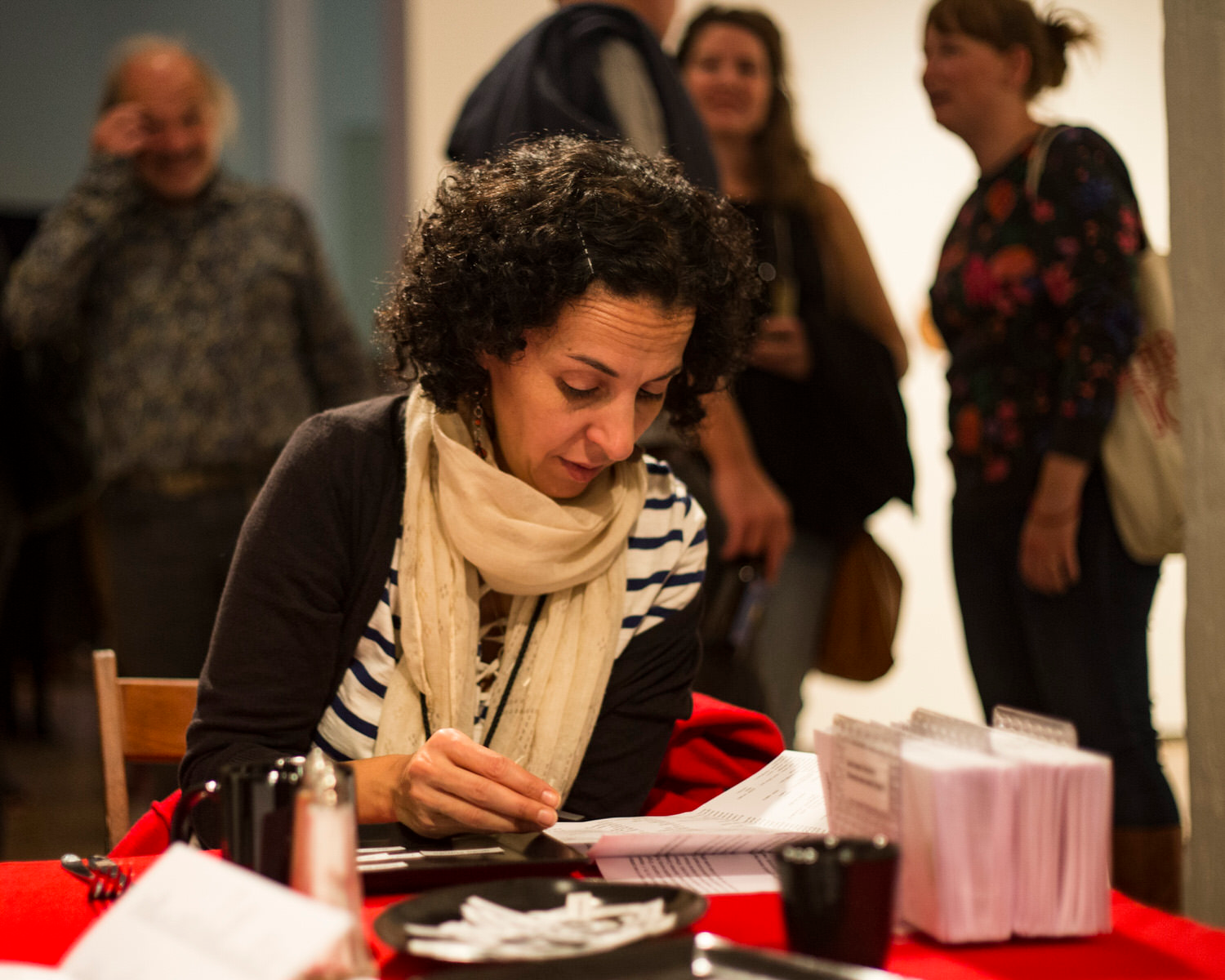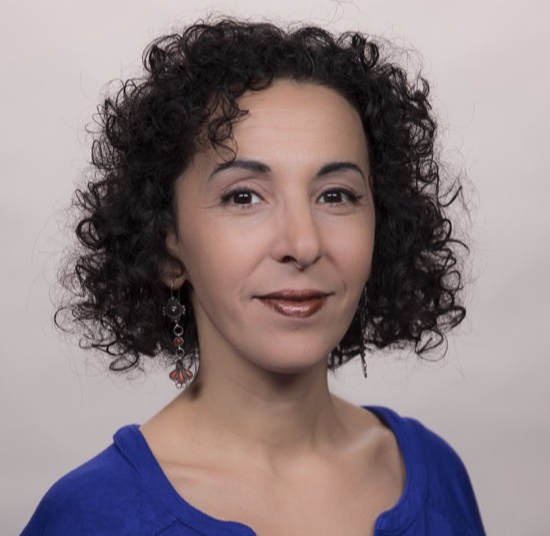 Saida Ouchaou-Ozarowski experiencing Haruko Okano's
Saida Ouchaou-Ozarowski experiencing Haruko Okano's
Homing Pidgin installation at the Deconstructing Comfort
exhibition at Open Space. Photo credit: Kirk Schwartz.
Freedom of expression in a special space.
Several topics emerged as soon as the workshop began, such as curiosity or ignorance about Islam—too often presented through negative or emotionally charged images—the narrow profiling of Muslim women (controlled by men, little visibility, forced to wear veils, etc.), the homogenous perception of Islam, and the limited knowledge of audio-visual works by Canadian Muslim artists.
This led to discussions about the type of documentary or cinematic works that have been produced in Canada and the way in which the many aspects of persons of Muslim culture and/or faith are addressed.
Nilufer Rahman, my co-facilitator and producer from Winnipeg, initiated a discussion about the work of Muslim female filmmakers in Canada within their religious communities. Nilufer explores the issues facing the Muslim community in which she was raised and her place of worship—the mosque. Having grown up in an open community where men and women prayed together, she now sees this mosque being subjected to the ultra-conservative influence of Middle Eastern countries like Saudi Arabia. Hence, she feels it is crucial that female artists provide a critical, yet constructive perspective in order to offset the trend toward an insular, homogeneous religious practice governed by male-dominated conservatism.
Based on my documentary research on the diversity of Muslim women in Canada, the discussions focused on the importance of expanding perspectives on the place of reformist practices, as well as that of non-practising Muslims demanding the reappropriation of an Islam that is more open to the outside world.
There is definitely much to learn about the presence of practising and non-practising Muslims from various backgrounds in the population. Practices are also influenced by cultural identity, education, and adherence to Canadian values within Muslim families.
This session highlighted the double hurdle facing Muslim female artists in Canada, like Nilufer, myself, and others present at PC/Cp. Being an artist is not an easy choice, given potential family disapproval. What’s more, an artist’s perspective on her Muslim and cultural community or the way in which Canadian society views Islam continues to be challenged by prejudices and closed minds.
How can we overcome all of this? By creating immersive media art experiences and exploring collaborations. To draw a parallel between the meetings held during the session and the four days of PC/Cp in Victoria, Aboriginal artists have much to teach us since, for them as well, exploring issues from within or outside their communities causes reactions and sometimes misunderstandings about the artistic work they generate.
Translated by Elizabeth Vincent.

Saïda Ouchaou-Ozarowski lives in Vancouver. She has written several documentaries: "Pluri'elles," "Une langue aux mille visages : le français au Canada," the web-docu series "La vie en rose" and more recently "Demain, nous parlerons tous chinois." She aims to capture the issues of society with the help of a camera.